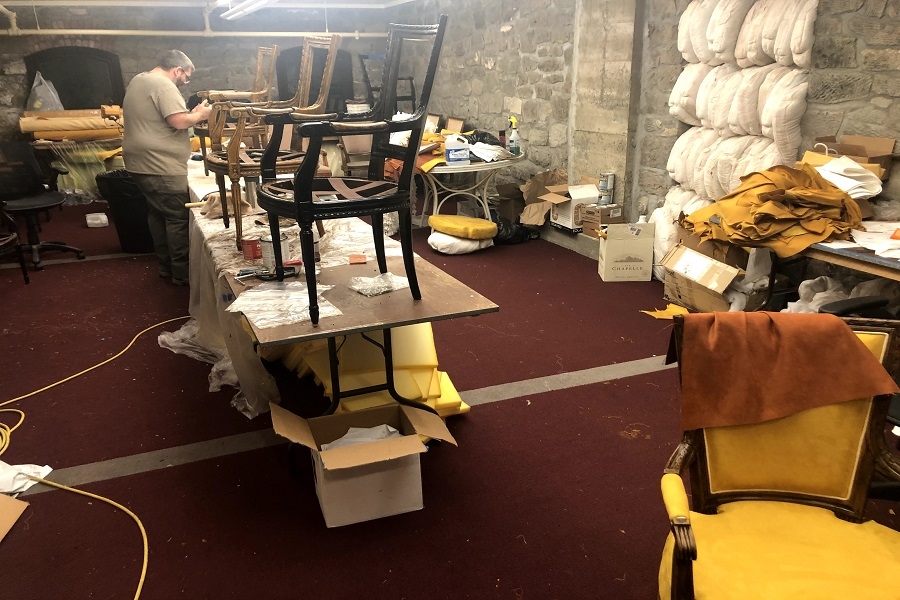With large public gatherings prohibited, event spaces have found unique ways to stay in business.
In 2018 the Seaside Civic and Convention Center underwent a $15 million renovation. The city had high hopes for the new facility. With more trade shows and conferences taking place year-round, the hope was that local businesses would be less dependent on summer tourists.
But like many in-person businesses over the past year, event spaces have taken a hit from COVID-19 restrictions on large gatherings.
By hosting smaller events and finding creative sources of revenue, some meeting spaces have managed to adapt. Others have had to furlough staff and face indefinite closure.
With no clear end to the pandemic, some business owners are calling on state agencies to use their spaces for public health events, and to rethink restrictions for venues that adhere to health protocols.
“It’s been a rocky ride,” says Russell Vandenberg, general manager of the Seaside Civic and Convention Center. “The phones started ringing with cancellations, some of the groups had been coming here for 45 years. We were devastated by the loss.”
Typically, the convention center does not host events that have been allowed to take place, such as small weddings and farmers markets. The 24,600 square feet of meeting space is better suited for conferences and trade shows. But with the center’s calendar suddenly wide open, hosting smaller events that conform to social-distancing requirements became the center’s main source of revenue.
For smaller event spaces that would normally hold these events, business has evaporated.
“I wish I could tell you we have been using the event space but we are following the restrictions as designed by the governor,” says Greg Taylor, general manager of the Valley River Inn in Eugene. “We did have some small socially distanced meetings but the market has dried up given the pandemic.”
Timothy Lainhart, rental program manager for the Oregon Military Department, has also adjusted to the pandemic by hosting small gatherings. Lainhart, who contracts with the Blue Mountain Conference Center in La Grande and other National Guard Armories across the state, says traditional gatherings have been replaced by smaller community events.
Instead of large weddings, dances and concerts, his event spaces now hold blood drives, farmers markets and county health screenings.
“If social-distancing restrictions turn out to be multiyear, our agency would need to seek a new funding model through the state or federal government,” says Lainhart.
Geiser Grand Hotel in Baker City chose to repurpose its event space. One of the rooms has been transformed into a pop-up shop, selling antiques, collectibles and used books.
One of the cellar spaces has been turned into a workshop, where staff refurbish and reupholster antiques for customers. Owner Barbara Sidway says running the shop has given her and her staff the chance to develop e-commerce skills by setting up a platform to sell products online.
Sidway claims crowd-size restrictions do not take account of event spaces that practice proper COVID-19 protocols. She says social gatherings limitations have unintended consequences, which she has seen firsthand.
After a 50-person wedding was cancelled, Sidway discovered the event had taken place as planned but in one of the attendee’s homes. Sidway says her facility would have done a much better job of ensuring the event took place safely.
“Which option would have been better to minimize COVID spread?” says Sidway, who claims professionally managed event spaces are being underused in the fight against the pandemic.
“The government should consider renting event space short term,” says Sidway. “COVID testing, vaccine distribution, health authority war rooms, census, processing unemployment claims, even rent our commercial kitchen for food prep.”
As the state continues to roll out vaccines to battle coronavirus, commercial meeting facilities could eventually find their spaces increasingly used to fight the spread of a disease that is putting their future at risk.
To subscribe to Oregon Business, click here.







